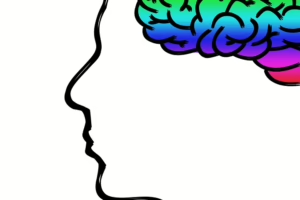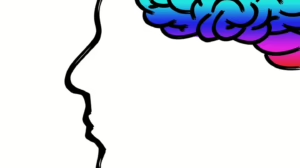When Love Hurts: Understanding and Addressing Toxic Relationships
Introduction
Love is often described as a beautiful and transformative experience, yet for many, it can also lead to pain and suffering. Toxic relationships can take a significant toll on individuals’ emotional and psychological well-being, often leaving them confused about love and affection. This article explores the characteristics of toxic relationships, their impacts, and practical strategies for addressing and healing from emotional wounds.
Understanding Toxic Relationships
Definition of a Toxic Relationship
A toxic relationship is one that is detrimental to an individual’s emotional and mental health. In these relationships, one or both partners engage in behaviors that are harmful and often lead to a cycle of dysfunction. Common characteristics include manipulation, jealousy, lack of support, and verbal, emotional, or even physical abuse.
Signs of a Toxic Relationship
Identifying a toxic relationship can be challenging, especially when entrenched in love. Here are some common signs:
- Lack of Support: Partners do not support each other’s aspirations or goals.
- Constant Criticism: One partner consistently belittles or criticizes the other, undermining confidence.
- Manipulation: Emotional blackmail or guilt-tripping is common.
- Isolation: One partner may try to isolate the other from friends and family.
- Jealousy and Possessiveness: Excessive jealousy can lead to controlling behaviors.
- Unbalanced Power Dynamics: One partner has more control over decisions in the relationship.
- Emotional Volatility: Frequent and severe mood swings create an unstable environment.
- Lack of Communication: Open communication is hindered, leading to misunderstandings and unresolved conflicts.
The Cycle of Toxicity
Toxic relationships often follow a cycle that includes:
- Idealization: The relationship starts on a high note with intense infatuation.
- Devaluation: Over time, negative behaviors emerge, leading to emotional pain.
- Discarding: The relationship may end, or one partner may withdraw emotionally.
- Reconciliation: Partners may go back to the idealization stage, convincing themselves of positive changes.
Understanding this cycle aids individuals in recognizing patterns within their relationships, allowing them to make informed choices about their emotional health.
Psychological Impact of Toxic Relationships
Emotional Distress
Emotional distress is one of the most significant impacts of toxic relationships. Individuals may experience:
- Anxiety: Constant worry about the relationship, coupled with fear of abandonment or conflict.
- Depression: Feelings of sadness or hopelessness can arise from ongoing pain and lack of support.
- Low Self-Esteem: Frequent criticism can undermine an individual’s self-worth.
Cognitive Dissonance
Cognitive dissonance refers to the mental discomfort experienced when holding two conflicting beliefs. In toxic relationships, individuals may love their partner but simultaneously recognize that the relationship is harmful. This dissonance can lead to confusion and prolonged suffering.
Long-Term Effects
The repercussions of a toxic relationship can linger long after it ends. Individuals may struggle with:
- Trust Issues: Difficulty in trusting future partners due to past experiences.
- Attachment Problems: Fear of intimacy or commitment can arise.
- PTSD Symptoms: Emotional trauma may manifest in flashbacks, anxiety, or withdrawal.
The Role of Societal Norms
Cultural Influence
Cultural narratives surrounding love and relationships can contribute to the normalization of toxic behaviors. For example, many cultures romanticize possessiveness as a sign of love, fostering unhealthy dynamics. It’s essential to challenge these narratives to promote healthier relationships.
Gender Norms
Societal expectations around gender can also influence relationships. For example, women may be socialized to tolerate unhealthy behaviors, believing that love requires sacrifice. Conversely, men may feel pressured to maintain a dominant role, leading to controlling behaviors.
Strategies for Addressing Toxic Relationships
Self-Reflection
Before addressing a toxic relationship, individuals should engage in self-reflection. Questions to consider include:
- How do I feel in this relationship?
- What behaviors are unacceptable to me?
- Am I sacrificing my mental health for the sake of love?
Open Communication
Having honest conversations with partners is crucial. When discussing feelings, using “I” statements can promote understanding rather than defensiveness. For instance, saying, “I feel neglected when you dismiss my feelings” is more constructive than generalizations.
Setting Boundaries
Establishing boundaries is essential to maintaining emotional health. Boundaries can include:
- Limiting contact during conflicts.
- Defining acceptable and unacceptable behaviors.
- Communicating needs clearly.
Seeking Support
Support from friends, family, or professionals can provide invaluable guidance. Therapy may offer a safe space for individuals to explore their feelings and gain insight into their relationship dynamics.
Healing from Toxic Relationships
Acknowledgment of Pain
The first step towards healing is acknowledging the pain endured in toxic relationships. Suppressing feelings can hinder emotional recovery. It’s essential to validate personal experiences.
Self-Care Practices
Engaging in self-care practices is vital for recovery. Activities could include:
- Journaling: Writing thoughts can help process emotions.
- Physical activity: Exercise can reduce stress and improve mood.
- Mindfulness and Meditation: These practices can foster inner peace.
Building New Relationships
As individuals heal, they may find it beneficial to seek new, healthier relationships. Ensuring that communication, boundaries, and mutual respect are prioritized can encourage a more positive relational dynamic.
Professional Help
For those struggling with trauma from a toxic relationship, therapy can be incredibly beneficial. Psychologists can provide specialized techniques to address emotional wounds and promote healing.
Conclusion
Toxic relationships can deeply affect individuals’ emotional and psychological wellbeing, leading to confusion about love and self-worth. Recognizing the signs and impact of toxicity, along with employing strategies for healing, can empower individuals to reclaim their lives and foster healthier relationships. Love should uplift and encourage growth, not induce pain and suffering.
Footnotes
- [1] Smith, J. (2020). The Psychological Impact of Toxic Relationships. Journal of Emotional Health.
- [2] Turner, A. (2019). Understanding the Cycle of Toxicity in Relationships. Relationships Research Quarterly.
- [3] Clarke, R. (2021). Self-Care and Recovery from Toxic Relationships. Holistic Therapy Journal.
- [4] Kim, L.F. (2018). Navigating Emotional Distress in Toxic Partnerships. Emotional Intelligence Today.
This overview provides foundational insights into toxic relationships and their effects. For a deeper investigation into the nuances of love, healing, and relational dynamics, further exploration will be needed.


























Add Comment